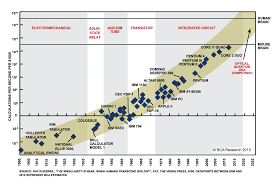
Breaking News
The Criminality Buried In The Epstein Files Is Worse Than Anyone Thought,...
 A Critical Review of Impacts of Greenhouse Gas Emissions on the U.S. Climate
A Critical Review of Impacts of Greenhouse Gas Emissions on the U.S. Climate
 The Great Reject is Upon Us! - #SolutionsWatch
The Great Reject is Upon Us! - #SolutionsWatch
 Google is issuing a call to action:
Google is issuing a call to action:
Top Tech News
 Drone-launching underwater drone hitches a ride on ship and sub hulls
Drone-launching underwater drone hitches a ride on ship and sub hulls
 Humanoid Robots Get "Brains" As Dual-Use Fears Mount
Humanoid Robots Get "Brains" As Dual-Use Fears Mount
 SpaceX Authorized to Increase High Speed Internet Download Speeds 5X Through 2026
SpaceX Authorized to Increase High Speed Internet Download Speeds 5X Through 2026
 Space AI is the Key to the Technological Singularity
Space AI is the Key to the Technological Singularity
 Velocitor X-1 eVTOL could be beating the traffic in just a year
Velocitor X-1 eVTOL could be beating the traffic in just a year
 Starlink smasher? China claims world's best high-powered microwave weapon
Starlink smasher? China claims world's best high-powered microwave weapon
 Wood scraps turn 'useless' desert sand into concrete
Wood scraps turn 'useless' desert sand into concrete
 Let's Do a Detailed Review of Zorin -- Is This Good for Ex-Windows Users?
Let's Do a Detailed Review of Zorin -- Is This Good for Ex-Windows Users?
 The World's First Sodium-Ion Battery EV Is A Winter Range Monster
The World's First Sodium-Ion Battery EV Is A Winter Range Monster
 China's CATL 5C Battery Breakthrough will Make Most Combustion Engine Vehicles OBSOLETE
China's CATL 5C Battery Breakthrough will Make Most Combustion Engine Vehicles OBSOLETE
When Moore's Law Ends: 3 Alternatives to Silicon Chips

Modern computers are truly amazing, continuing to improve as the years go by. One of the many reasons why this has happened is due to better processing power. Every 18 months or so, the number of transistors that can be placed onto the silicon chips within integrated circuits doubles.
This is known as Moore's Law and was a trend noticed by Intel co-founder Gordon Moore back in 1965. It is because of this reason that technology has been spurred on at such a rapid pace.
What Exactly Is Moore's Law?
Moore's Law is the observation that as computer chips get faster and more energy efficient, whilst becoming cheaper to produce. It is one of the leading progression laws within electronic engineering and has been for decades.
What Is Moore's Law, And What Does It Have To Do With You? [MakeUseOf Explains] What Is Moore's Law, And What Does It Have To Do With You? [MakeUseOf Explains] Bad luck has nothing to do with Moore's Law. If that is the association you had, you are confusing it with Murphy's Law. However, you were not far off because Moore's Law and Murphy's Law... Read More
One day, however, Moore's Law is going to come to an 'end'. Whilst we have been told about the impending end for several years, it is almost certainly approaching its final stages in the current technological climate.

It is true that processors are constantly getting faster, cheaper, and having more transistors packed onto them. With each new iteration of a computer chip, however, the performance boosts are smaller than they once were.



